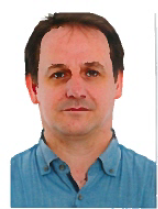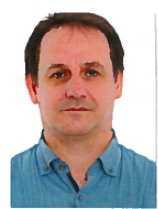Day 1 :
Keynote Forum
Ioannis Papasotiriou
R.G.C.C.S.A., Greece
Keynote: Innovations in drug development through transcriptomic analysis of liquid biopsies and exosome utility

Biography:
Ioannis Papasotiriou born in Munich, Germany. He graduated from Medical School of Thessaloniki University in 1997. He made his first specialty in Human Genetic (University of Zurich), and his second specialty in Hematology Oncology (MLU/UKH/Halle/Saale). He obtained two Mater degrees, one in molecular biology in medicine from the Westminster University and one in Oncology from the University of Nottingham. He completed his promotion (MD) in MLU University in the area of TKIs in human cancer cells lines. Between 2001 and 2004 he established Arzt Genetik Zentrum in Thessaloniki where he was a director. Since May 2004 he is the medical director of R.G.C.C.S.A. where the major field of expertise is molecular oncology with main interest in the entity of Cancer Stem Cell (CTCs) like.
Abstract:
Liquid biopsy becomes one of a key tool sampling in cancer, which may be proved to be prognostic and even diagnostic analytical method. Additionally, to that, circulating tumor cells may become relevant entity to indicate new druggable targets. In our study, we analyze plenty of circulating tumor cells transcriptome. The analysis of transcriptome for repeatable expression patterns in combination of data mining, reveal new druggable targets that lead to ligand based drug design of new molecules with pharmacophore properties. Specifically, the analysis revealed a repeatable pattern in hormone depended breast carcinoma cases, where ERK1 and ERK2 transcripts were highly overexpressed. Then a ligand based drug design has been initiated and few candidate molecules have been generated from RGCC1 to RGCC12. Then the candidate RGCC7 showed the best efficacy against this specific type of cancer, both in cancer cell lines and primary cells cultures as well. Furthermore, the candidate RGCC7 has been encapsulated in exosomes derived from cancer cell cultures of the same origin. Then the efficacy of the candidate molecule increased up to 80 percent approximately compared to the non-encapsulated form. This process reveled that firstly selecting the proper sample for analysis is important in finding of druggable targets. And secondly, the improvement of drug delivery can equally be improved by using biological systems that we are already familiar with.
Keynote Forum
Ioannis Papasotiriou
R.G.C.C.S.A., Greece
Keynote: Innovations in drug development through transcriptomic analysis of liquid biopsies and exosome utility
Time : 09:00-09:30

Biography:
Ioannis Papasotiriou born in Munich, Germany. He graduated from Medical School of Thessaloniki University in 1997. He made his first specialty in Human Genetic (University of Zurich), and his second specialty in Hematology Oncology (MLU/UKH/Halle/Saale). He obtained two Mater degrees, one in molecular biology in medicine from the Westminster University and one in Oncology from the University of Nottingham. He completed his promotion (MD) in MLU University in the area of TKIs in human cancer cells lines. Between 2001 and 2004 he established Arzt Genetik Zentrum in Thessaloniki where he was a director. Since May 2004 he is the medical director of R.G.C.C.S.A. where the major field of expertise is molecular oncology with main interest in the entity of Cancer Stem Cell (CTCs) like.
Abstract:
Liquid biopsy becomes one of a key tool sampling in cancer, which may be proved to be prognostic and even diagnostic analytical method. Additionally, to that, circulating tumor cells may become relevant entity to indicate new druggable targets. In our study, we analyze plenty of circulating tumor cells transcriptome. The analysis of transcriptome for repeatable expression patterns in combination of data mining, reveal new druggable targets that lead to ligand based drug design of new molecules with pharmacophore properties. Specifically, the analysis revealed a repeatable pattern in hormone depended breast carcinoma cases, where ERK1 and ERK2 transcripts were highly overexpressed. Then a ligand based drug design has been initiated and few candidate molecules have been generated from RGCC1 to RGCC12. Then the candidate RGCC7 showed the best efficacy against this specific type of cancer, both in cancer cell lines and primary cells cultures as well. Furthermore, the candidate RGCC7 has been encapsulated in exosomes derived from cancer cell cultures of the same origin. Then the efficacy of the candidate molecule increased up to 80 percent approximately compared to the non-encapsulated form. This process reveled that firstly selecting the proper sample for analysis is important in finding of druggable targets. And secondly, the improvement of drug delivery can equally be improved by using biological systems that we are already familiar with.
